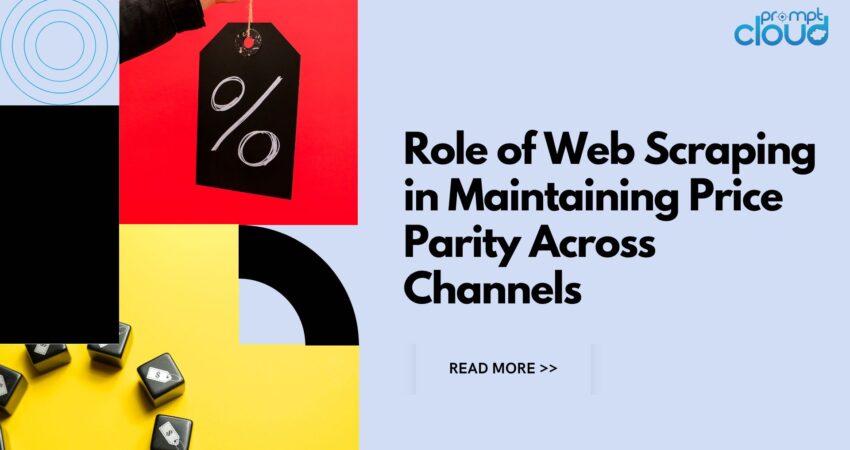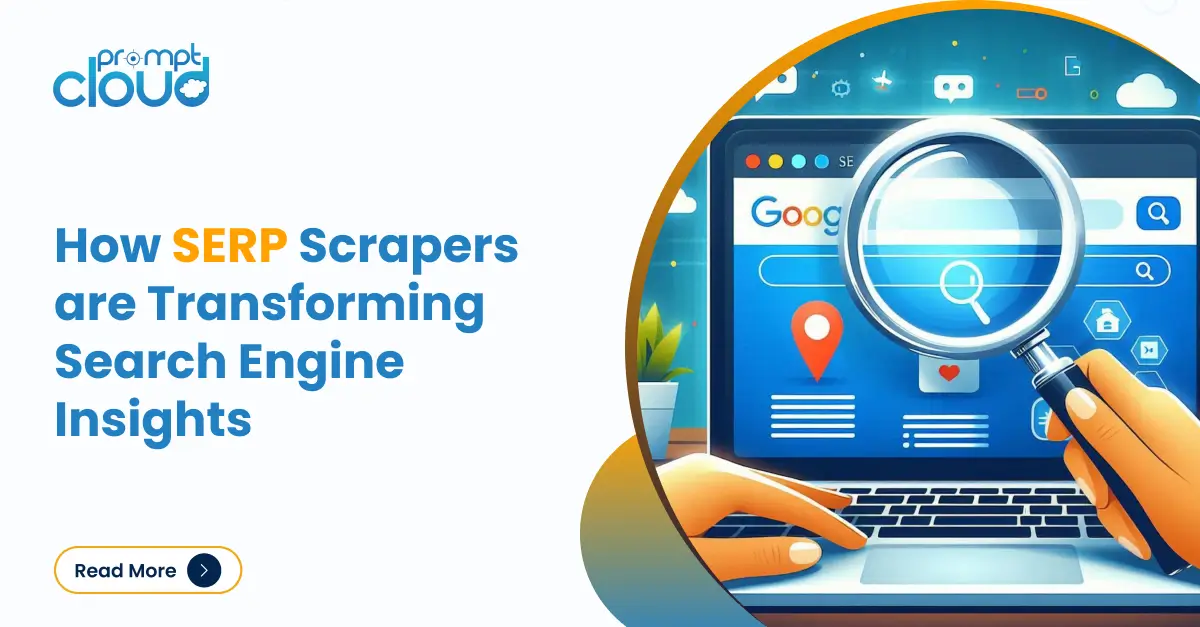
In today’s hyper-connected digital marketplace, price parity has become a critical focus for businesses across industries. With customers having instant access to price comparisons, maintaining consistent pricing across multiple sales channels isn’t just about fairness – it’s about trust, competitiveness, and profitability. But ensuring price parity in real time is no small feat. That’s where web scraping steps in as a powerful tool, enabling businesses to monitor, analyze, and act on price discrepancies efficiently. Let’s dive deeper into how web scraping plays a transformative role in managing price parity and why it’s essential for your business.
What Is Price Parity? Why It Matters Across Channels?
Source: 42signals
Price parity refers to maintaining uniform pricing for a product or service across all sales channels, be it your brand’s website, third-party marketplaces, or offline stores. While this seems straightforward, the complexity arises due to the varied nature of distribution channels, promotions, regional pricing, and dynamic pricing strategies. Price disparities can creep in due to a multitude of reasons:
- Resellers setting their own prices.
- Promotional discounts on specific platforms.
- Errors in price listings across marketplaces.
- Fluctuations in currency exchange rates for international sellers.
These inconsistencies can erode customer trust, affect brand image, and even lead to contract disputes with resellers. For businesses aiming to maintain a cohesive and competitive pricing strategy, the challenge lies in monitoring prices across a multitude of platforms. This is where web scraping proves invaluable.
What Is Web Scraping? Why is it Essential for Ensuring Price Parity?
Web scraping is the automated process of extracting data from websites. Using scripts or tools, web scraping allows businesses to collect massive amounts of data from different platforms in real time. When applied to price monitoring, web scraping enables businesses to:
- Track competitor pricing.
- Compare prices listed on multiple channels.
- Identify unauthorized price changes by third-party resellers.
- Analyze pricing trends and market dynamics.
Without web scraping, monitoring prices manually across hundreds or thousands of product listings is not only time-consuming but prone to errors. Automated scraping tools simplify this process, providing accurate, timely insights into pricing inconsistencies.
How Web Scraping Supports Price Parity Efforts?
Web scraping goes beyond basic data collection. It empowers businesses to maintain price parity with precision, efficiency, and actionable insights. Here are some ways web scraping contributes to achieving price parity across channels:
1. Real-Time Price Monitoring
With web scraping, businesses can monitor prices across multiple channels in real time. This ensures that any discrepancies are identified as soon as they arise, allowing brands to address them promptly. For example:
- A retailer can monitor product prices on marketplaces like Amazon and eBay to ensure that their resellers aren’t undercutting the agreed-upon pricing.
- Regional price variations can be tracked to ensure they align with global pricing strategies.
Timely data from web scraping enables businesses to act swiftly, protecting their pricing integrity.
2. Competitor Price Benchmarking
Price parity isn’t just about internal consistency; it’s also about staying competitive in the market. Web scraping tools can gather data on competitor pricing, discounts, and promotions, giving businesses a benchmark against which to measure their own strategies. Armed with this data, companies can:
- Adjust their pricing dynamically to stay ahead of competitors.
- Detect underpriced products that could harm market perception.
- Ensure competitive pricing without compromising profitability.
3. Enforcing Reseller Compliance
One of the biggest challenges in maintaining price parity is ensuring that third-party resellers adhere to the pricing agreements set by the brand. Unauthorized price drops by resellers can damage brand value and disrupt channel relationships. Web scraping allows brands to:
- Track prices set by resellers on e-commerce platforms.
- Identify unauthorized discounts or markups.
- Take corrective actions, such as issuing warnings or terminating partnerships with non-compliant resellers.
4. Dynamic Pricing Management
Dynamic pricing strategies, where prices fluctuate based on demand, competition, or market conditions, require constant monitoring of market trends. Web scraping feeds the real-time data necessary for implementing dynamic pricing effectively. For example:
- A travel company can monitor hotel or airline prices to adjust their own rates dynamically.
- E-commerce platforms can analyze competitors’ flash sales and promotions to offer competitive deals instantly.
5. Enhanced Customer Trust
Inconsistent pricing can frustrate customers and lead to a perception of unfairness. Web scraping helps businesses ensure consistent pricing across all channels, enhancing customer trust. For example:
- A customer checking a product on your website and a marketplace should see the same price to avoid confusion or loss of trust.
- Unified pricing builds credibility, especially for premium brands where perception is key.
Best Practices for Using Web Scraping to Maintain Price Parity
While web scraping is a powerful tool, implementing it effectively requires careful planning and adherence to best practices. Here are some common challenges and how to overcome them:
1. Legal and Ethical Considerations
Web scraping must comply with the terms of service of the websites being scraped, as well as data privacy regulations like GDPR. Using scraping responsibly ensures that businesses avoid legal complications. Partnering with experienced web scraping service providers, such as PromptCloud, ensures compliance with ethical and legal standards.
2. Handling Data Volume and Complexity
With thousands of SKUs and multiple platforms, the volume of data can be overwhelming. Businesses should use advanced tools that can parse, filter, and structure the data into actionable insights. Prioritize:
- Scraping only relevant data points (e.g., product name, price, discounts).
- Using robust data analytics tools to derive meaningful trends.
3. Dynamic Website Changes
Websites frequently update their structure, which can disrupt scraping scripts. Investing in tools that adapt to these changes ensures continuous data collection without downtime.
4. Data Quality and Accuracy
Poor-quality data can lead to incorrect decisions. Regularly validate scraped data against manual checks to ensure its accuracy. Partnering with a reliable web scraping service helps maintain high-quality, reliable data streams.
How PromptCloud Helps Maintain Price Parity Across Channels?
PromptCloud specializes in providing scalable and customizable web scraping solutions tailored to the needs of businesses across industries. With extensive expertise in price monitoring and data extraction, PromptCloud enables businesses to:
- Monitor prices across diverse channels and competitors effortlessly.
- Ensure reseller compliance with pricing agreements.
- Implement dynamic pricing strategies with real-time data.
- Maintain a consistent and competitive pricing strategy to enhance customer trust.
By outsourcing your web scraping needs to a trusted partner like PromptCloud, you can focus on leveraging insights rather than worrying about data collection complexities.
Conclusion
In an era where price transparency and customer trust are paramount, maintaining price parity across channels is not just a strategic advantage – it’s a necessity. Web scraping is the backbone of this effort, providing businesses with the tools to monitor, analyze, and act on pricing data effectively.
As markets grow more competitive and customers demand consistency, investing in robust web scraping solutions can position your business for success. Whether it’s enforcing reseller compliance, benchmarking against competitors, or implementing dynamic pricing, web scraping empowers you to stay ahead of the curve while delivering value to your customers.
With the right strategy and a trusted partner like PromptCloud, you can transform raw data into actionable insights, ensuring price parity and a seamless customer experience across every channel. Get in touch with us at sales@promptcloud.com for custom web scraping solutions.


















